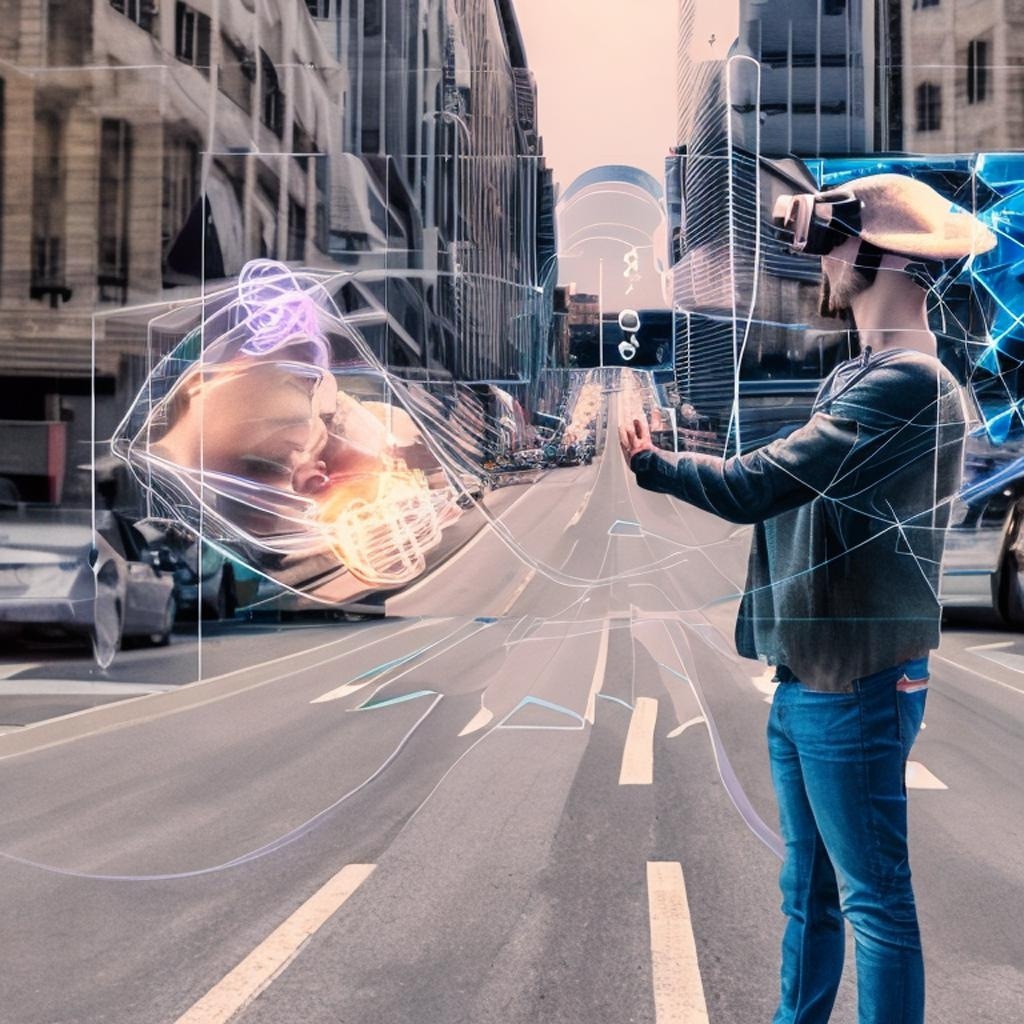
Technology
The Future Of Augmented Reality: How AR Is Revolutionizing The Way We Interact With The World

The Future of Augmented Reality and How AR is Revolutionizing the Way We Interact with the World can be accessed below.
As technology continues to evolve, so do our interactions with the world around us.

One of the most exciting and rapidly developing technologies is augmented reality (AR), which allows us to experience digital content in a real-world setting.
From shopping to gaming, AR has the potential to revolutionize the way we interact with the world.
What is Augmented Reality?
So, what exactly is augmented reality? AR is a technology that overlays digital information onto the real world, creating an immersive experience for the user. Unlike virtual reality (VR), which creates a completely artificial environment, AR enhances the real world by adding digital elements to it. This can be done through a variety of devices, including smartphones, tablets, and wearable devices.

READ ALSO: AI: Alibaba To Roll Out ChatGPT Rival Tongyi Qianwen In China
Current Applications of AR
AR is already making waves in various industries, including retail, entertainment, and education. For example, many retailers are using AR to allow customers to virtually try on clothes or see how furniture would look in their homes. In the entertainment industry, AR is being used to create interactive experiences that merge the digital and physical worlds. And in education, AR is being used to create immersive learning experiences that make complex concepts more engaging and accessible.
The Future of AR: 5 Ways AR will Revolutionize Our Interactions With The World
But what does the future of AR hold? Here are some ways that AR is likely to revolutionize the way we interact with the world in the years to come:
1. More Advanced and Affordable Hardware
As AR continues to gain popularity, we can expect to see more advanced and affordable hardware become available. This could include devices like smart glasses, which would allow users to experience AR without the need for a separate device like a smartphone. As the technology becomes more accessible, we can expect to see more widespread adoption of AR in various industries.
2. More Personalized Experiences
As AR becomes more prevalent, it will become increasingly important for experiences to be tailored to individual users. This could include personalized shopping experiences that show users products that are relevant to their interests or customized educational experiences that cater to a student’s learning style. By leveraging data and machine learning, AR experiences can become more personalized and engaging.
3. Improved Accessibility
One of the most exciting aspects of AR is its potential to improve accessibility for people with disabilities. For example, AR could be used to provide real-time captions for people who are deaf or hard of hearing, or to provide audio descriptions for people who are blind or have low vision. By making digital content more accessible, AR has the potential to create a more inclusive world for everyone.
4. Enhanced Collaboration
AR has the potential to revolutionize the way we collaborate with others, whether it’s in the workplace or in social settings. By allowing users to share virtual spaces and interact with digital content together, AR could make remote collaboration more seamless and engaging. It could also create new opportunities for socializing and connecting with others, even if they’re not physically in the same location.
[the_ad id=”41670″]
5. New Possibilities for Education and Training
As mentioned earlier, AR is already being used in education to create immersive learning experiences. In the future, we can expect to see even more innovative uses of AR in education and training.
For example, AR could be used to create realistic simulations that allow medical students to practice surgeries or that allow engineers to test prototypes in a virtual environment.
By providing more realistic and engaging training experiences, AR has the potential to improve learning outcomes and prepare people for real-world situations.
Augmented reality is a technology that is poised to revolutionize the way we interact with the world around us. From personalized shopping experiences to immersive educational simulations.
AR has the potential to enhance our lives in countless ways. As the technology continues to evolve and become more accessible, we can expect to see even more innovative applications of AR in various industries.
READ ALSO: Navigating The Ethical Implications of Artificial Intelligence: A Comprehensive Guide
However, like any new technology, there are also challenges that need to be addressed. For example, privacy concerns around the collection and use of user data in AR experiences will need to be addressed.
Additionally, as AR becomes more advanced and immersive, there is a risk of users becoming too reliant on it and losing touch with the real world.
Overall, the future of augmented reality is exciting and full of possibilities. By leveraging this technology in innovative and responsible ways. We can create a more connected, inclusive, and engaging world for everyone.
















